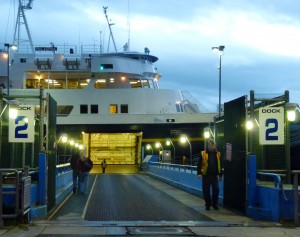
Port community leaders worry next summer’s Alaska Marine Highway System schedule will be as unreliable as this summer’s.
Budget cuts and mechanical breakdowns left many of this year’s passengers stranded, dropping destinations or switching to air travel. Town leaders say that hurt tourism, especially small-town excursions, restaurants and bed-and-breakfasts.
During Wednesday’s schedule teleconference, Wrangell Economic Development Director Carol Rushmore said she’s being asked whether it will happen again.
“It’s just so critical from an economic standpoint for our businesses and communities that if we have all these cancellations in July and August, it’ll just be disastrous,” she said.
Small communities dependent on the Alaska Marine Highway were hardest hit, since they had fewer alternatives.
Pelican Mayor Patricia Phillips said officials need to have backup plans when ferries break down.
“It’s essential to reschedule canceled service due to mechanicals or scheduling changes. We have freight out here waiting to ship out, so it’s important to reschedule that service,” she said.
Pelican isn’t in the draft schedule, though officials say it will be. But it, Sitka and many other communities will see reduced service .
The schedule is a worry for more than Southeast. Prince William Sound, for example, faces significant service cuts with its fast ferry tied up next year.
Alaska Travel Industry Association President Sarah Leonard said a third of her 700 member businesses are in ferry ports.
“The changes to the schedule last summer resulted in a 14 percent decline in non-resident travel on the ferry. And members told us that they lost thousands of dollars in business due to the rebookings and cancellations,” she said.
Alaska Marine Highway officials said they’re doing their best to design a schedule that can be maintained.
That’s the reason for the deep reductions proposed for next summer, which reflect a $25 million budget cut.
Transportation Department Deputy Commissioner Mike Neussl said everything depends on legislative funding.
“There’s always risk and uncertainty there. I will do my best in testifying and communicating that it’s important that we lock that schedule in and fund the schedule we publish,” he said.
Neussl and other ferry officials say they’ll make some changes in the draft schedule for next summer. It should be complete in December.
Ed Schoenfeld is Regional News Director for CoastAlaska, a consortium of public radio stations in Ketchikan, Juneau, Sitka, Petersburg and Wrangell.
He primarily covers Southeast Alaska regional topics, including the state ferry system, transboundary mining, the Tongass National Forest and Native corporations and issues.
He has also worked as a manager, editor and reporter for the Juneau Empire newspaper and Juneau public radio station KTOO. He’s also reported for commercial station KINY in Juneau and public stations KPFA in Berkley, WYSO in Yellow Springs, Ohio, and WUHY in Philadelphia. He’s lived in Alaska since 1979 and is a contributor to Alaska Public Radio Network newscasts, the Northwest (Public Radio) News Network and National Native News. He is a board member of the Alaska Press Club. Originally from Cleveland, Ohio, he lives in Douglas.




